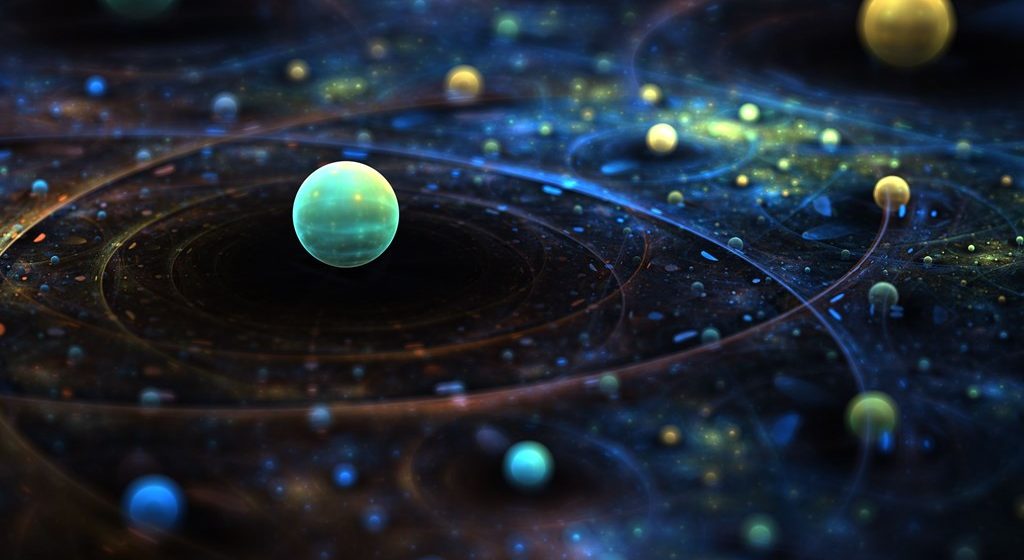Cosmological assumptions and breakthroughs have had their fair share in influencing conceptions of human life and politics. Over the years, many scientists have argued for a more harmoniously ordered state of affairs based on observations of the natural world. For instance, Albert Einstein commented on the idea of a world government:
“Mankind’s desire for peace can be realized only by the creation of a world government. With all my heart, I believe that the world’s present system of sovereign nations can only lead to barbarism, war, and inhumanity.”[1]
Recently,Glen T. Martinhas argued in favour of a world government by drawing on parallels to the evolution in our understanding of the universe.[2] Martin attempts to prove the plausibility of establishing a world government by relying on the modern paradigm of cosmology. To make his argument, he goes through a three-step process.
First, he lays out the differences between the early-modern paradigm (“Newtonian paradigm”) and the 20th century or modern paradigm (“special relativity”) of understanding the universe. While the former assumes that the universe is composed of an immense number of discrete particles existing autonomously within the space-time container, the modern paradigm establishes that “things are not composed of discrete atoms in external relations with one another, they are composed of principles of order in which wholes and parts inseparably imply one another within a nexus of internal relationships.”In other words, neither the parts nor the whole can exist without the other.”
Second, Martin compares states to particles and a world federation to space-time. Under the first paradigm, each state is sovereign and in constant rivalry of national egoisms, power politics, and war. This closely resembles both past and present international relations. Analogous to the modern paradigm of cosmology that sees particles as interrelated, he imagines the creation of a holistic world state system that represents and unifies polities previously thought of as disparate and invariably in competition.
Lastly, Martin identifies an inherently social character of humanity and an ability to collectively flourish and strive towards a teleological project of peace, equality and justice. For him, this progressive march of history leads to the establishment of a holistic world government, which parallels the order found in the cosmos. Despite this novel and thought-provoking approach to understanding world government and the relationship between states, there are two flaws in Martin’s understanding.
First, scientifically speaking, the Newtonian paradigm that Martin disregards entirely is not as obsolete as he believes.[3] In fact, both paradigms consider particles as inseparable parts of the whole. Simply put, in Newton’s eyes particles are discrete in a space-time that is flat and constant, while for Einstein space-time is dynamic and undergoing continuous alterations depending on velocity and gravity. Thus, the Newtonian paradigm only becomes inaccurate with regards to exceptional circumstances, such as under the speed of light.
In my view, this theory could provide for the most accurate imagination of the relationship between states and the international political system. Under this theory, a heavy mass tends to cause more distortion to the space-time and thus affects gravity in proportion to other masses. This closely resembles how the most powerful political entities can cause distortions in the international system. States would not be sovereign equals anymore under a world government than in the eyes of cosmology.Rather, the heaviest political powers would always bend the fabric of politics towards their interests.
Second, applying observations and theories from the natural science to social phenomena should always be done with a grain of salt. While there might be such things as “the laws of physics,” few if any immutable laws govern the social world. Social sciences have long been vexed bychaotic, diverse, and unpredictable human behaviour. While Martin does not completely ignore the human factor, his view might be too optimistic, as it disregards dominant human traits and behaviour, such as the tendency towards conflict.
The difference between celestial objects and social constructs, such as states, is that the latter have agency, which can result in behaviour that is neither fully predictable nor rational. The problem of Martin’s efforts to build a holistic theory, spanning from space-time to a world government, which are governed by the same “laws,” is that it ends up overlooking important distinctions, idiosyncrasies and realities that separate cosmology from social and international relations. The sometimes unruly and indeterminate nature of the social world, is aptly summed up by UN Secretary General, Antonio Guterres:
“We live today in a world that is no longer bipolar, no longer unipolar but it is not yet multipolar. It’s really chaotic. The relationships are unclear, bringing with it unpredictability and impunity that tends to proliferate everywhere. And in which there is a deep mistrust between countries and groups of countries that, of course, facilitates the multiplication of conflicts and the difficulty to solve them.”
[1]Albert Einstein, New York Times (Sep. 15, 1945).
[2]Glen T. Martin, The “Power” of World Government: The New Holistic Paradigm Embedded in the Earth Constitution.
[3]Stephen Hawking, A Brief History of Time (1988).





